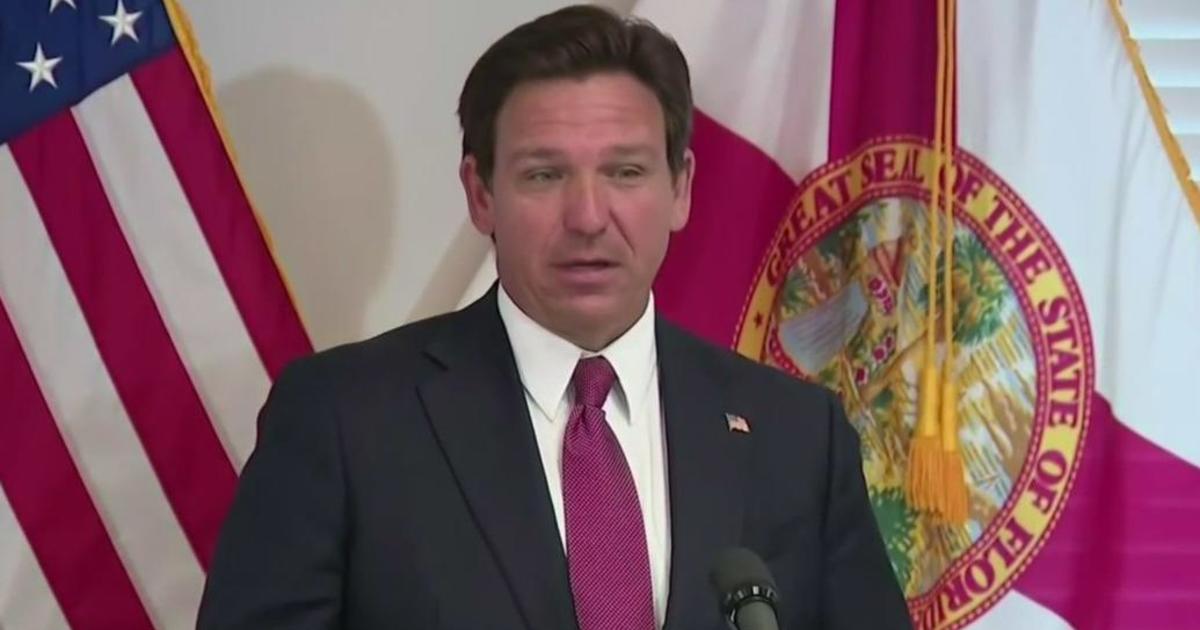Increase In Uninsured Florida Children Spurs Concerns
Follow CBSMIAMI.COM: Facebook | Twitter
TALLAHASSEE (CBSMiami/NSF) -- The number of children who lack health insurance is growing in Florida despite an improving economy, worrying advocates who fear it may be the start of a troubling trend that the state cannot beat back.
The Georgetown University Center for Children and Families on Thursday issued a report that showed about 325,000 uninsured children in Florida in 2017, up from 288,000 in 2016. That put Florida's overall uninsured rate for children at 7.3 percent.
The number of uninsured nationally increased from 3.649 million in 2016 to 3.925 million last year, according to the report. Florida ranked 42nd in the country among states for its uninsured rate.
"With an improving economy and low unemployment rate, the fact our nation is going backwards on children's health coverage is very troubling," said Joan Alker, who serves as executive director of the Georgetown center and is the lead author of the report. "Even states with the best of intentions were unable to withstand strong national currents to fully protect children from losing coverage."
Alker attributed the increase in uninsured children to a variety of factors, including uncertainty about the federal Affordable Care Act and slashing public funding for "navigators" who help people obtain health coverage. Another potential factor is a rule proposed by the Trump administration's that would make it more difficult for legally residing immigrants to get green cards if they tap into benefits such as Medicaid.
Alker said the best thing a state can do to address the increases in uninsured children is to expand Medicaid. But with the election this month of Republican Ron DeSantis as Florida's next governor, that is unlikely to occur.
Florida did not expand Medicaid under the Affordable Care Act, commonly referred to as Obamacare, and social-service advocates have long complained that the state has some of the most stringent Medicaid requirements in the country. In 2015, Gov. Rick Scott, working with the state House of Representatives, killed efforts pushed by Florida hospitals to expand Medicaid to childless adults.
Florida in the past expanded coverage through the federal Children's Health Insurance Program, which was approved in the 1990s. Under what is known as Florida KidCare, children are assigned into one of a number of health-care programs based on their ages and income levels, which can make it difficult for families to navigate. Also, unlike traditional Medicaid, some of those programs require monthly premiums and co-payments.
Anne Swerlick, a health analyst and attorney for the Florida Policy Institute, said the new report's findings are disturbing and worries that the numbers of children without insurance may continue to rise.
"I don't think there's any political debate that having health coverage for kids is a good thing," Swerlick said, lamenting that "Florida had been doing a great job of putting a dent in our uninsured rate."
In 2008, the percentage of children in Florida without insurance was 17.3 percent.
"There's been a lot of hard work out in the community, so now that the trend line is creeping back up, I think we really need to take a hard look at why that's happening and have a strategy and action to push back on that,'' Swerlick said.
Medicaid continues to be the primary source of health coverage for the children who are insured in Florida. The data shows that Medicaid and the Children's Health Insurance Program were the primary sources of coverage in 2017, insuring nearly 40 percent of the children who have coverage. Another 38 percent of the insured children in 2017 had coverage through health plans offered by employers.
The study indicated the percentage of children in Florida without insurance went up across the six different racial and ethnicity categories as well in five different income brackets.
However, the largest jump was in the percentage of uninsured white children. In 2016, 6.4 percent of white children were uninsured. That figure jumped to 7.2 percent in 2017. Moreover, it was children living in families who earned between 200 percent and 299 percent of the federal poverty level (or between $48,600 and $72,900 for a family of four) with the biggest increase in uninsured rates.
The study used data from the 2017 American Community Survey published by the U.S. Census Bureau.
Florida law requires most Medicaid patients to confirm twice a year that they still meet income requirements to qualify for the program, except for children under age 5 who have annual eligibility. Some advocates fear that children are falling off the Medicaid rolls during the re-qualifying process.
Florida has worked with Medicaid managed-care plans to provide coverage for beneficiaries since 2013, after the Legislature passed an overhaul of the Medicaid program.
Wences Troncoso, general counsel of the Florida Association of Health Plans, a statewide managed-care association, said health plans can send letters --- and do --- to recipients to remind them about re-enrollment requirements, but contracts the plans sign with the state preclude them from doing much more.
(©2018 CBS Local Media. All rights reserved. This material may not be published, broadcast, rewritten, or redistributed. The News Service of Florida's Christine Sexton to this report.)



